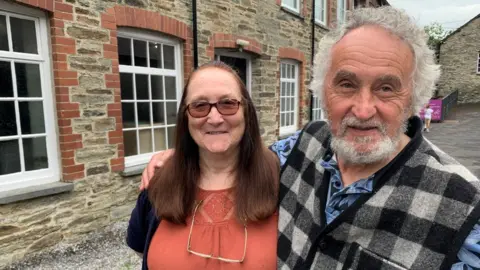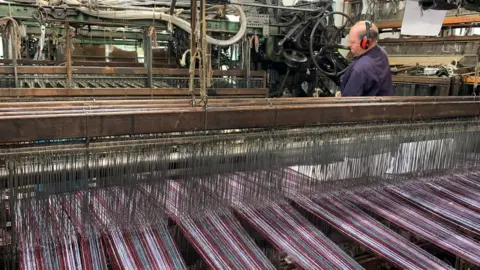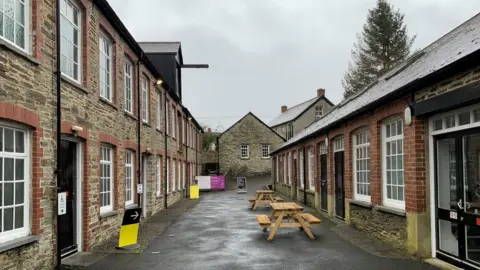Carmarthenshire wool mill saved by museum takeover
 BBC
BBCA traditional wool mill has been saved after fears it would close when its owners retired.
National Museum Wales has bought Melin Teifi in Felindre, Carmarthenshire, as part of its National Wool Museum.
Raymond and Diane Jones set up the business in 1982 after working at Cambrian Mills in Dre-fach Felindre for 18 years until it closed.
After being made redundant, the couple, now in their 70s, wanted to carry on as it "was all we knew," said Ms Jones.
After a trip to Yorkshire to buy all the looms they needed, they set up shop in a unit at a former prisoner of war camp in Henllan before moving to the old Cambrian Mills site two years later.
Ms Jones said: "The wool industry is special once you start. The truth is it gets into your blood. We've made a lot of friends and we have enjoyed our lives here."

Mr Jones said he was relieved to know the building and tradition was secure: "It's in good hands now and they will keep the tradition going.
"Hopefully Melin Teifi will continue in some form or other, especially the manufacturing side of it.
"The Welsh woollen industry has been building up over the last 20 years.
"There is plenty of work around, work comes to us. I think there is a rosy future now for the Welsh woollen industry and I am hoping the museum taking over this mill will help."
There were 217 mills in Wales when the industry was thriving in the early 20th Century. Today there are five.

National Wool Museum boss Anne Whittall believed the takeover was an important continuation of the trade.
"Raymond and Diane have been very supportive and they will be helping us in the future to make sure we continue to develop and use the knowledge of our crafts people in weaving some of the traditional tapestry patterns," she said.
Fast fashion going out of style could also be good for business.
Ms Whittall said: "We are all more aware of where our clothes come from and where they are made and how they are made.
"There is a call in Wales to look more closely at our own natural resources and making more use of Welsh resources.
"So there is a huge opportunity here for the Welsh wool museum and Welsh wool."
